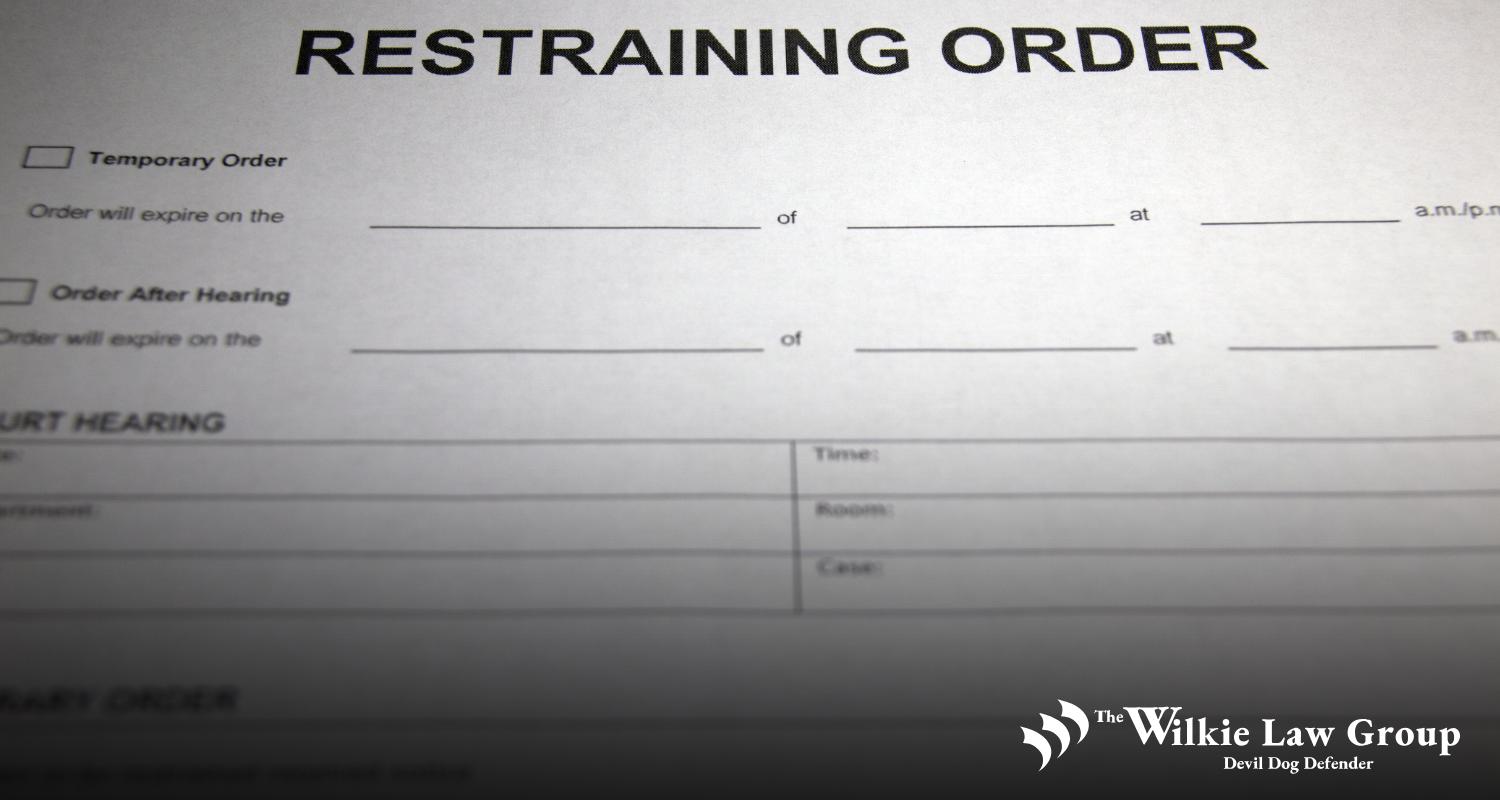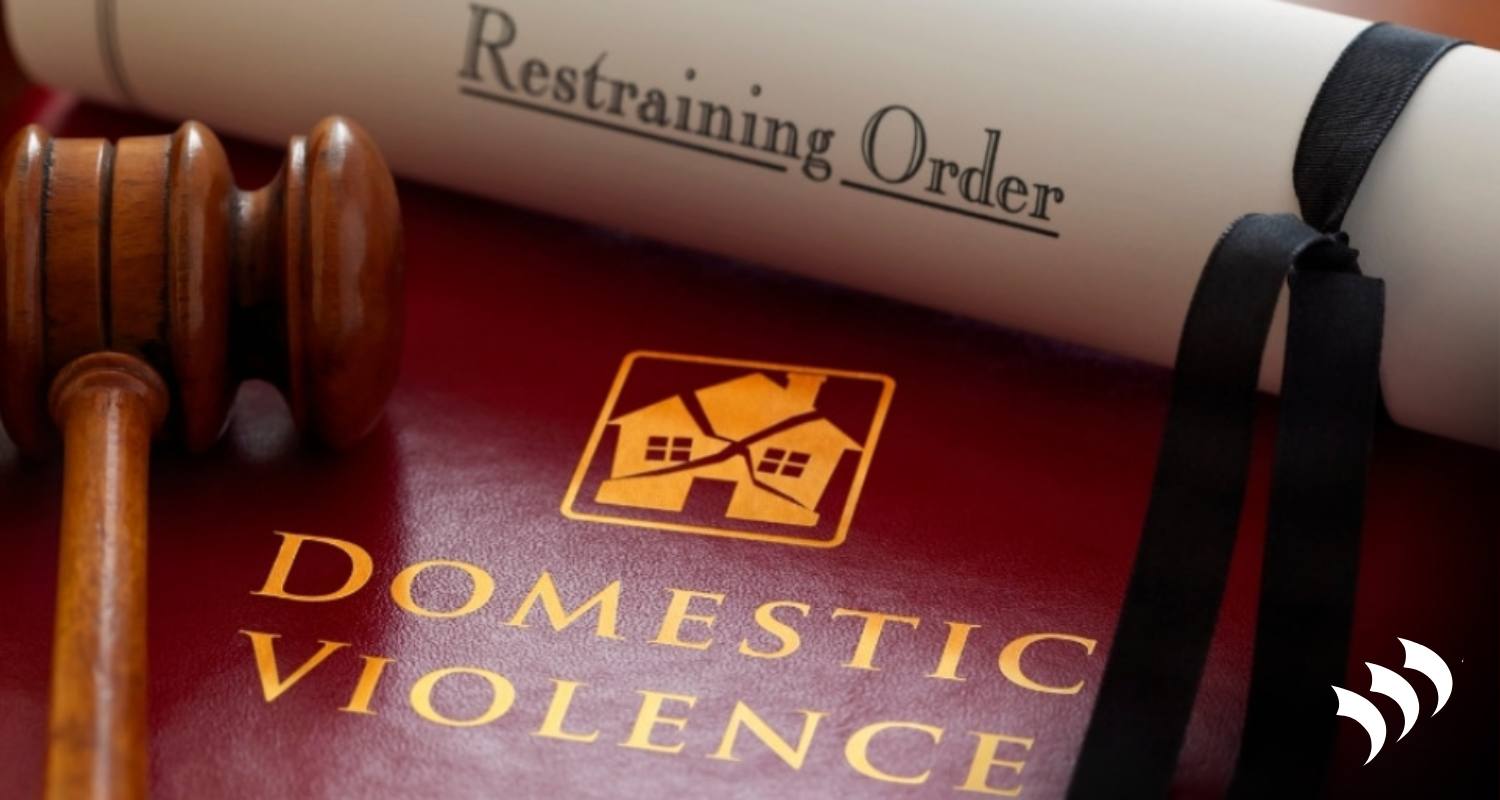Protective Order Violations in North Carolina
Domestic Violence Protective Order (DVPO) Violation Law Firm Serving Jacksonville, Wilmington, and Beyond
Home » Domestic Crimes » DVPO Violations
Practice Areas
Jacksonville, North Carolina Protective Order Defense Attorney

If you’ve been accused of protective order violations in North Carolina or the surrounding areas, you need the help of an experienced criminal defense attorney such as Aden Wilkie. At The Wilkie Law Group, our legal team will help protect your rights and fight for the best possible outcome for you, no matter what. To learn more, give our experienced Jacksonville domestic crimes attorney a call at (910) 333-9626 today.
What is a DVPO?
A Domestic Violence Protective Order in NC, also known as a DVPO or a 50B order, is a type of civil no-contact order designed to protect individuals from harm in situations involving domestic violence. A DVPO can be issued when the petitioner has a qualifying personal relationship with the alleged offender, such as a spouse, ex-spouse, family member, current or former household member, co-parent, or someone with whom they have a dating relationship.
These orders are available to both male and female victims and can address a range of abusive behaviors. Under North Carolina law, a DVPO may be granted when there is evidence that the offender:
- Attempted to cause, or has caused, bodily injury;
- Engaged in actions that have caused the victim and/or their family to be fearful of imminent serious bodily injury;
- Continuously harassed the victim at such a level that they inflict substantial emotional distress;
- Committed nonconsensual sexual conduct or sexual abuse.
Once in place, a DVPO typically prohibits the alleged abuser from contacting or approaching the victim for a set period. It can also impose restrictions on where the defendant can go, require them to move out of a shared residence, and provide temporary custody provisions for children.
By granting these protections, North Carolina courts aim to reduce the risk of continued harm and create a legal framework that allows victims to seek safety while the matter is addressed through the legal system.
Permanent No-Contact Order in North Carolina
In North Carolina, a permanent restraining order is issued by civil court to provide long-term protection for victims who have proven their case under the law. However, the word “permanent” is a bit misleading, as these orders typically remain in effect for up to one year initially, with the option to renew for additional periods of up to two years if the threat or harassment continues.
Temporary Restraining Order in North Carolina
An ex parte order, often called a temporary restraining order, is a short-term protection issued by the court before the accused abuser has a chance to respond. These orders are typically granted when the victim shows an immediate need for safety, such as facing a risk of harm or ongoing threats. An ex parte order remains in effect for a short period until a full hearing can be scheduled in court, where both sides can present evidence and the judge decides whether to issue a longer-term protective order.
The Administrative Office of the Court’s provides standardized forms and procedures for requesting an ex parte hearing, ensuring victims can access protection when needed.
50B Order vs 50C Order
Under North Carolina law, a 50B and a 50C order are both a type of civil no-contact order, but they apply to different situations. A 50B order applies in cases of domestic violence involving a personal relationship, such as current or former spouses, dating partners, family members, or people who share a child. A 50B order can provide protections like removing the abuser from the home and restricting contact.
A 50C order, on the other hand, falls under the Workplace Violence Prevention Act. It is used when there is no qualifying personal relationship but unwanted contact, harassment, stalking, threats, or fear of physical injury still occurs. A court granting a 50C order can prohibit further contact and provide other protective measures, but it does not include the same custody or support provisions available under a 50B.

What is a DVPO Violation?
Generally, a DVPO prohibits contact (directly or indirectly) with the plaintiff, assault, threats, or harassment of the plaintiff or their family. It also prohibits the defendant from possessing any firearms and requires them to turn over any firearms they do own to the sheriff, among other regulations and requirements.
When a defendant does something they are ordered not to or refuses something they are ordered to do, they are violating the order. For example, if the judge directs the defendant not to contact the plaintiff directly or indirectly and the defendant phones the plaintiff or has a friend do so, the defendant has violated the DVPO. This is a criminal offense and can lead to potentially severe consequences.
What Violates a No-Contact Order?
The following are some of the most common DV protective order violations:
- Contacting the victim, their family members, or children
- Entering or visiting a home granted for the victim’s use
- Going to the victim’s workplace, school, children’s daycare, or other related locations
- Failing to pay required living expenses or child support
- Threatening, harassing, or following the victim or their children
DVPO/Restraining Order/No-Contact Order Rules NC
In North Carolina, a DV Protective Order (DVPO), restraining order, or no-contact order sets strict rules, regulations, and restrictions to protect victims from further harm. When granted, a DVPO can require the abuser to stay a certain distance from the victim, their home, children’s school, workplace, or any location where the victim may be seeking shelter. Additionally, the order may remove the abuser from the same household and grant the victim use of household goods or personal property, such as a vehicle or home furnishings. A DV protective order violation can also include temporary custody and temporary child support provisions to ensure children are safe and their needs are met while the case is active.
The court may use specific language in the order to address unique safety concerns, limit contact, and set restrictions for court dates where both parties may be present.

What Happens If You Violate a Restraining Order in NC?
A 50B order, also known as a restraining order or a DVPO, is a type of restraining order established specifically for victims of domestic violence in North Carolina. Unlike a conventional restraining order, the 50B order offers victims more protection and gives law enforcement more authority to charge and arrest an abuser who commits a protective order violation.
Violating a No-Contact Order in NC
When a judge issues a domestic violence protective order, it includes several safeguards to help keep the victim safe. If the accused violates the specific terms set forth in the order, law enforcement can arrest them on the spot. As a result, a DVPO violation is more than just “contempt of court,” but a major criminal violation with serious consequences, such as:
A DVPO Violation Can Lead To Criminal Penalties
Under Chapter 50B of the North Carolina Statutes, a protective order is fully enforceable, and violations can bring serious consequences. As such, it is important to follow every requirement set out in a protective order. Any violation can result in immediate arrest and, in some cases, felony charges such as aggravated stalking. Penalties depend on the nature of the violation and a number of other circumstances, but may include hefty fines, jail time, and more.
A DVPO Violation Can Affect Your Divorce Case
Protective order violations can also put your divorce proceedings under scrutiny. Even though North Carolina is a no-fault divorce state, judges may consider a history of domestic violence or a DVPO violation when dividing property and debt. This behavior can influence decisions on spousal support as well, since the court may weigh past abuse or protective order violations in favor of the other spouse.
In short, violating a protective order can give your spouse strong evidence to seek a more favorable outcome in the divorce. If you find yourself in such a situation, an experienced Jacksonville, NC family law attorney on our team can explain how serious this impact can be.
DVPOs Can Affect Custody Proceedings
When it comes to child custody cases in North Carolina, the court’s top priority is the well being of the minor child. When domestic abuse is involved, judges focus on protecting both the child and the abused parent. Should a parent cruelly treat a child or violate a DV protective order, the court will closely review the child’s safety and may require supervised visitation. In some cases, these actions can lead to an unfavorable final custody decision for the offending parent.

Can You Go to Jail for Violating an Order of Protection?
Yes. In North Carolina, violating an order of protection can lead to immediate arrest, and depending on the circumstances, the offender may face misdemeanor or felony charges that carry potential jail time and any number of additional penalties the court imposes.
Penalties for Violating a DVPO
A first-time violation of a 50B order is a Class A1 misdemeanor. Just under felony allegations in severity, an A1 charge is the highest level of a misdemeanor offense. It carries a maximum sentence of five months in jail.
There are four felony charges involving DVPO infractions in addition to the misdemeanor violation. These include:
- Committing a felony while a restraining order is in effect;
- Being in possession of a deadly weapon and violating the order;
- Entering into a safe house where the protected person lives; and
- A third instance of violating an order after two misdemeanor violation convictions.
If this is the person’s third or subsequent violation of a no-contact order, he or she might be charged with a Class H felony and face a term of up to 39 months in prison. The same sanctions apply if the accused used a fatal weapon to violate their restraining order.
How to Beat a Violation of Order of Protection
Experienced attorneys know that defending against a violation of an order of protection requires a thorough review of the evidence, the order’s exact terms, and the events leading to the alleged violation. At The Wilkie Law Group, our seasoned NC domestic violence defense lawyers may challenge whether the accused had proper notice of the order, prove the contact was accidental or permitted, or show that the allegations are false or exaggerated. As such, building a strong defense often involves witness testimony, electronic records, and any other evidence that disputes the prosecution’s claims.
North Carolina Restraining Order FAQs
How Does the Court Know if a No Contact Order is Violated?
The court typically learns of a no contact order violation through a police report, witness statements, or other documented evidence, such as phone records or surveillance footage. Once reported, law enforcement investigates the claim and may arrest the accused if there is probable cause to believe the violation occurred.
Can a Protected Party Violate a Restraining Order?
No. In North Carolina, a restraining order places legal restrictions only on the accused, not the protected party. While the protected person may initiate contact, it is still the accused who faces arrest and charges if they respond or engage in any interaction that violates the order.
Can the Victim Get in Trouble For Violating a No Contact Order?
Because it is not considered violating the domestic violence protective order when the person who requested the order breaks it, they won’t be arrested or charged with contempt of court if he or she breaches their own restraining order. However, consequences do exist. For example, the defendant can ask for dismissal or modification of the order if the petitioner breaks it.
Is There a Penalty for Filing a False Restraining Order?
Yes. Knowingly filing a false restraining order can lead to criminal charges such as perjury or filing a false police report, both of which carry potential fines and jail time. The court may also order the person to pay the other party’s legal costs.
How Much Jail Time for Violating an Order of Protection in NC?
In North Carolina, violating an order of protection is usually a Class A1 misdemeanor, which can result in up to 150 days in jail. Repeat or severe violations, such as those involving violence or stalking, can be charged as felonies and carry longer prison sentences, potentially over 3 years behind bars.
What is the Bail Amount for Violating a Restraining Order in NC?
In North Carolina, there is no fixed bail amount for violating a restraining order—the judge sets bail based on factors like the severity of the violation, the defendant’s criminal history, risk to the victim, and likelihood of appearing in court. In cases involving serious threats or violence, the court may impose a high bail or even deny bail altogether.
Why You Need an Experienced Attorney for DVPO Violations in NC
Courts sometimes move forward on a new complaint for a protective order violation without conducting a full investigation into the facts. If the order stems from a prior domestic violence charge, there may be fear of ongoing harm that leads prosecutors or judges to act quickly (oftentimes with bias) when assessing the case. To protect your rights, security, and future, it is essential to have a skilled criminal defense attorney represent you.
Criminal charges for violating a DVPO can also affect related legal matters, including child custody disputes, where the court may review your conduct to determine parental fitness. Even seemingly minor interactions, such as text messages, can be used as evidence to meet the prosecution’s burden of proof.
At The Wilkie Law Group, our criminal lawyers in Jacksonville, NC will gather as much detail as possible, challenge weak or misleading evidence, and prepare for your hearing with a strategy focused on achieving the best possible outcome.

Facing a DVPO Violation in NC? Our Experienced Attorneys Can Help
If you have been accused of violating a DVPO, do not wait to obtain legal counsel. Immediate action can help your attorney gather evidence and witness statements while they are fresh and ensure your rights are protected from the very start. Whether you are facing allegations related to the original order or a new complaint, our team has the knowledge and experience to defend against violations of DV protection orders in North Carolina.
Call our law firm at (910) 333-9626 or send us a message online to speak with a member of our team regarding your case today.
Contact a North Carolina DVPO Defense Attorney Today
Facing a violation of a domestic violence protective order in North Carolina? Don’t fret – you have a fighting chance against these charges with attorney Aden Wilkie defending you. He and his dedicated team at The Wilkie Law Group will investigate the circumstances surrounding the alleged violation and vigorously defend your case in court. Give us a call or fill out our online intake form today to set up a confidential consultation to discuss these allegations and your legal options moving forward.
